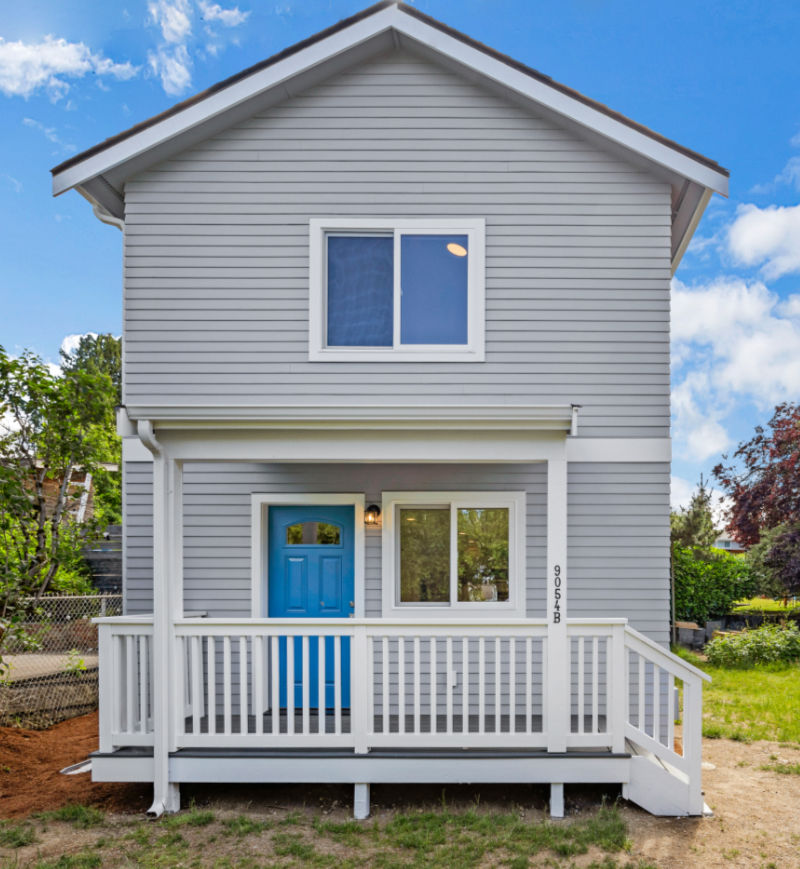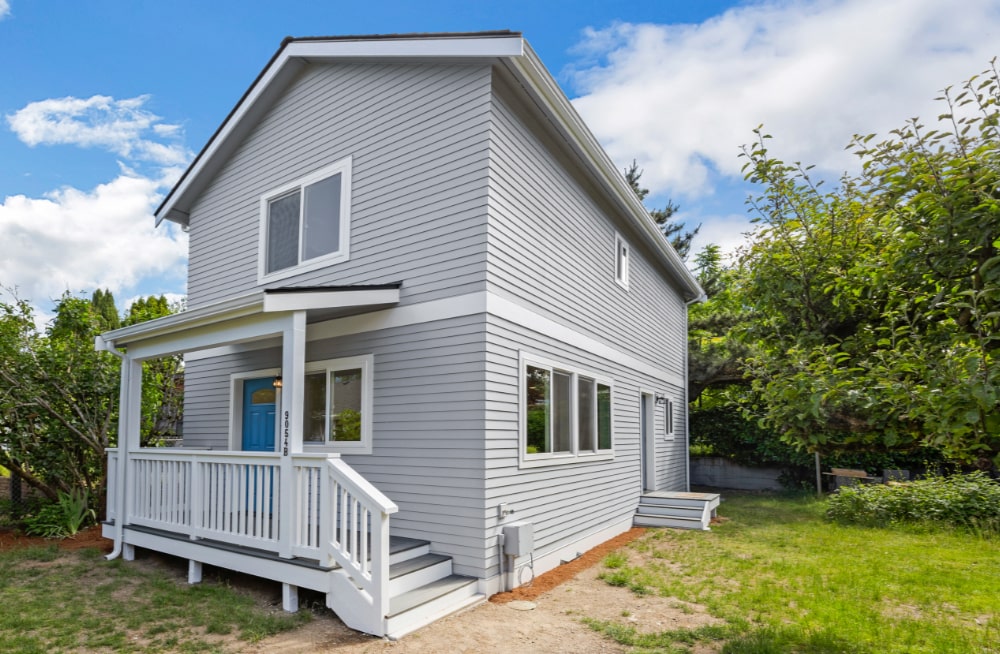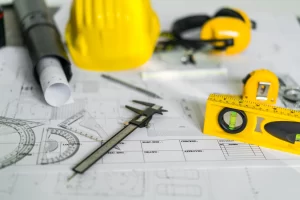Accessory Dwelling Units (ADUs) are gaining momentum thanks to new laws and incentives that simplify the building process. However, the complexities of zoning laws, costs, and design options leave many homeowners with unanswered questions. This guide covers the most common questions about ADU development, providing actionable insights to help you plan your project with confidence.
ADU Building Basics
1. What Is an ADU?
An ADU (Accessory Dwelling Unit) is a secondary residential structure built on the same lot as a single-family or multi-family home. It includes a kitchen, bathroom, and sleeping area.
2. What Are the Types of ADUs?
The main types include:
- Detached ADUs: Standalone structures.
- Attached ADUs: Share a wall with the primary home.
- Garage Conversions: Adapt an existing garage.
- Internal ADUs: Reconfigure space within the existing home, such as basements or attics.
3. What Are JADUs?
Junior ADUs (JADUs) are smaller (up to 500 sq. ft.) and must be attached to the primary home. They offer unique benefits, such as shared sanitation facilities, fewer fees, and no parking requirements.
4. How Big Can an ADU Be?
Size limits vary by location but typically include:
- Detached ADUs: Up to 1,200 sq. ft.
- Attached ADUs: Maximum 50% of the main home’s square footage.
- Height limits: 16-25 feet, depending on proximity to transit and local regulations. Check local zoning laws for specifics.
5. What Are Other Names for ADUs?
ADUs go by many names: Granny flats, guest houses, in-law suites, and carriage houses. However, they are distinct from mobile tiny homes.

Costs of Building an ADU
6. How Much Does It Cost to Build an ADU?
On average:
- New construction (from 499 sq. ft. up to 1200 sq. ft): $161,700 – $421,125 (This can vary significantly based on location and options selected)
- Garage conversions: $90,000 – $119,000 Use tools like the ADU Cost Calculator for more precise estimates.
7. What Are the City Fees?
City fees range from $3,000 to $7,000 for ADUs up to 749 sq. ft. Larger units (750+ sq. ft.) may incur additional impact fees. This can include permits for permits, plan reviews, inspections and more.
8. How Can I Finance an ADU?
Options include:
- Home equity loans
- Construction loans
- Government grants, such as the CalHFA ADU Grant
9. How Can I Save on Costs?
- Use pre-approved or simple designs.
- Opt for smaller units.
- Work with contractors experienced in ADU construction to avoid costly delays.
Constructing an ADU
10. How Do You Build an ADU?
ADUs can be custom-built on-site or prefabricated in factories. Popular methods include:
- Traditional builds: For fully customizable designs.
- Modular units: Assembled on-site from pre-built components.
- Shipping container homes: An affordable, eco-friendly option.
11. How Long Does It Take to Build?
- New construction: 5-9 months.
- An experienced builder can streamline the process for a shorter construction timeline.
- Garage conversions: 3-4 months.
Benefits and Uses of ADU’s
12. What Are the Benefits of Building an ADU?
- Multi-generational living.
- Rental income opportunities.
- Increased property value (up to 30%).
- Flexible use as offices, guest houses, or gyms.
13. Do ADUs Address the Housing Crisis?
Yes. ADUs provide affordable housing and are especially impactful in high-demand areas like California, Washington, and New York.
14. Can ADUs Be Used as Non-Living Spaces?
Yes, ADUs can serve as:
- Art studios
- Home offices
- Yoga studios
Practical Considerations
15. Are There Minimum Lot Size Requirements?
Yes and No, ADUs are allowed on any residential lot that meets zoning requirements, however DADUs can require a specific lot size. Check with your local municipality or builder to clarify zoning requirements.
16. Do ADUs Require Parking?
Parking requirements can vary by city. Ask your builder.
17. Can I Sell an ADU Separately?
Perhaps, in some areas like Seattle the property can be subdivided and ADUs can be sold independently of the main home.
ADUs are an excellent option for retirement homes. Moving aging loved ones into an ADU provides proximity for care while maintaining their privacy and independence. This arrangement helps families avoid the high costs and emotional strain associated with nursing homes or assisted living facilities
By understanding these diverse aspects of ADUs, homeowners can make informed decisions about how best to use these versatile spaces.
Resources for ADU Development
Here are some helpful resources for further guidance:
- Snohomish County WA ADU Information: Common ADU questions answered by Snohomish County WA
- Seattle WA ADU Information: How to build an ADU in Seattle.
- How to ADU: Real-life stories and cost breakdowns.
- Snap ADU: Step-by-step construction guides.
- Acton ADU: Expert tips on navigating local regulations.
- Accessory Dwellings: Comprehensive information on ADU policies and design.
Contact us today to explore your options and make your dream ADU a reality!



